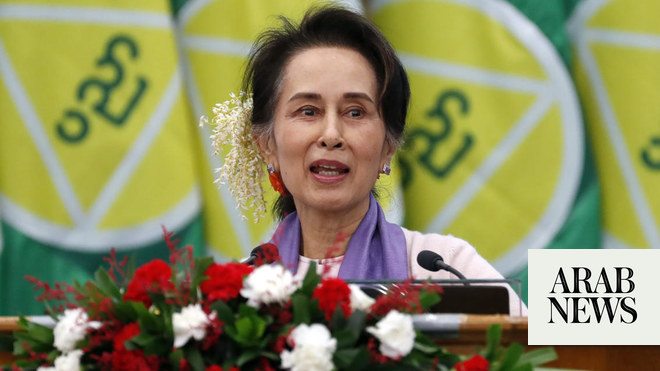
In an unexpected twist, Aung San Suu Kyi last month confirmed that she will personally travel to The Hague in December to answer the suit brought against Myanmar by The Gambia at the International Court of Justice (ICJ) over the Rohingya genocide. And apparently this has been decided in agreement with the military in Myanmar, which controls foreign affairs and security and which carried out the “clearing operations” that the state of Myanmar stands accused of.
This is a baffling but welcome state of affairs. In presenting herself before the court, Suu Kyi is implicitly acknowledging the legitimacy of the judicial proceedings against her country. It says that she believes there is such a thing as international law, and that the ICJ has jurisdiction to adjudicate over questions of international law as they apply to Myanmar.
The reason why this was unexpected is because the case filed against Myanmar is exploring uncharted territory. It may transpire that the ICJ, just as much as any of the other courts of international law, is quite limited in its capacity. Normally, the penalty for failing to cooperate is not so much judicial in any meaningful sense, but political: States that do not engage with the organs of international law would expect to be shunned and marginalized by the international community. But, in a world where the norms of international law have been hollowed out by the lack of moral support and leadership from the US, and where China is happily expanding its sphere of influence and patronage by being scrupulously amoral on issues of international law, this would be much less of a concern.
Those who orchestrated the genocide against the Rohingya in Myanmar would reasonably expect to be shielded from consequences before the ICJ, as well as the International Criminal Court, UN bodies and anyone else who tries to hold them to account, by the Myanmar state, which in turn would be protected from geopolitical consequences by its new patron, Beijing. And yet Suu Kyi, herself personally accused of enabling and defending those who organized and perpetrated the atrocities against the Rohingya, is unilaterally volunteering to appear before the ICJ. Why?
At least by some accounts, she seems to be genuinely unaware of exactly what has been happening with any of the minorities being persecuted
Dr. Azeem Ibrahim
At this moment in time, one can only speculate. Perhaps Suu Kyi is taking a leaf from the political playbook of her new friend, Viktor Orban, and the other insurgent populists around the world: Facts do not seem to matter anymore, but a brazen lie told loudly and confidently may yet count as the supreme act of political strength in the current moment in political history. And what better platform to grandstand your narrative than an international court that can only pass a judgment?
If that is the play, it is extremely risky and quite unlikely to succeed. The much more likely outcome is that Suu Kyi and Myanmar alike would utterly destroy any remaining shred of political capital they have on the international stage, rendering the country even more dependent on Chinese patronage. This would not be an ideal situation for a country that has spent most of its post-colonial history isolating itself from the world as a defiant statement of national sovereignty.
A more likely explanation has to do with some observations that have come out of Myanmar, from people who used to know Suu Kyi and worked with her when she was still an international pro-democracy icon: That she does not seem to be the person she used to be. This is not a glib statement about some ideological transformation, but rather a comment on her state of mind.
At least by some accounts, she seems to be genuinely unaware of exactly what has been happening with any of the minorities being persecuted, and she reacts with extreme frustration to any facts of the matter being presented to her, as if they were a malicious conspiracy theory targeted to undermine her country, and perhaps her personally. Many individuals I have spoken to who met her and brought up the issue of atrocities all say the same thing: That she explodes and goes into a fit of anger, saying that these are all fabricated allegations. She may actually believe that. I am not qualified to make any medical diagnoses, but that behavior is at least consistent with delusional paranoia and other early symptoms of dementia.
If that is the case, then she is being set up as the patsy for the genocide by the people who organized and carried out the genocide: The very military establishment that has been uncharacteristically keen for the nominal leader of their country to answer to a “foreign court.”
Either way, going only on what we know so far, the situation does not add up. The good news is that international law has been activated to respond to a genocide situation. This was not something we could still take for granted in the world we seem to live in, but at least for now that is something we can celebrate. As to where this will end up, that remains to be seen.
• Dr. Azeem Ibrahim is a Director at the Center for Global Policy and Chair of the Rohingya Legal Forum. Twitter: @AzeemIbrahim
Disclaimer: Views expressed by writers in this section are their own and do not necessarily reflect Arab News" point-of-view












